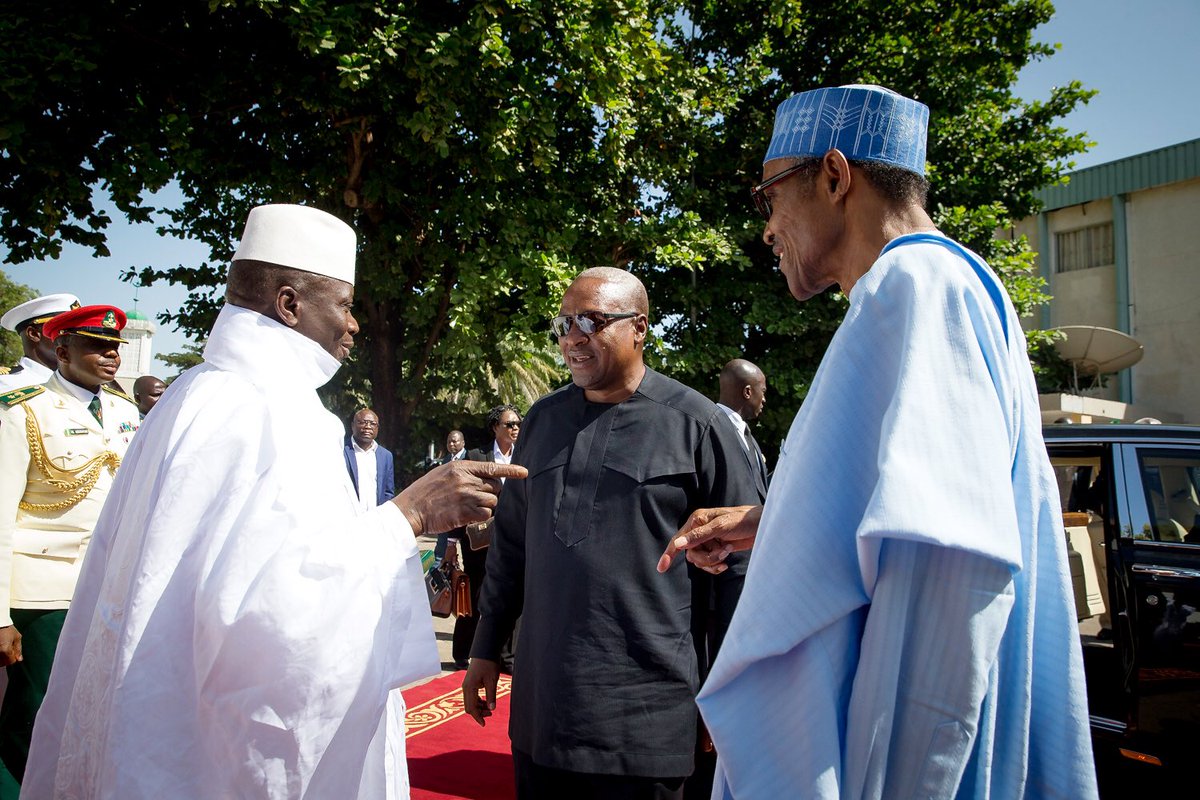
COMMENT: By Abdulhamid Manzil
How to deal with a country divided between two polarized, mutually dissenting political groups
A showdown awaits the world after January 19 when President Yahaya Jammeh of The Gambia’s term is expected to end. Regional block ECOWAS, through its plain-speaking Commission President Marcel Alain de Souza, has expressed certainty to use “draconian” measures as an alternative to failing diplomacy. To make real the threat of using force, de Souza told Malian Television the “deadline is January 19 when the mandate of Jammeh ends” and that “If he [Jammeh] doesn’t go, we have a force that is already on alert, and this force will intervene to restore the will of the people”. Senegal, The Gambia’s only territorial neighbor, will lead the military action, according to reports.
So, with the backing of the African Union, whose Chairperson Idris Deby called the ECOWAS position “principled”, we might see The Gambia up in flames.
This latest position taken by ECOWAS and its allies, notwithstanding the outcome of the controversial elections, is surely going to imperil the future of The Gambia and devastate its citizens contrary to what it apparently intends to achieve. Here is why.
The Gambians went to a highly contested poll that saw the opposition edge over Jammeh with a marginal 19,221votes (3.7%) after the Electoral Commission ‘modified’ the previously announced results. Jammeh, who had conceded before the official results were announced, changed heart on December 9, four days after the ‘modification’ of the results. It should now be clear that the country is divided between two polarized, mutually dissenting political groupings, given the margin of victory secured by the opposition coalition.
President Jammeh’s political party, the Alliance for Patriotic Reorientation and Construction (APRC) is in the Supreme Court contesting the outcome of the elections as provided for by Article 49 of The Gambian constitution, something the opposition and their military adventurists in the ECOWAS will not give chance to.
While President Jammeh told state television on December 20 he would accept the results if they are upheld by the Supreme Court, the opposition coalition maintain “no court on earth can cancel Barrow’s victory”. So there is likely to be deadlock.
 The Independent Uganda: You get the Truth we Pay the Price
The Independent Uganda: You get the Truth we Pay the Price



